Finding better ways to meet the different learning abilities of children with special educational needs (SEN) is one reason why parents choose to homeschool in Singapore. Conditions that affect a child’s learning include autism spectrum disorder, attention deficit hyperactivity disorder, dyspraxia and dyslexia.
“No two children, even with the same diagnostic label, share [the] same profile of challenges and strengths,” says holistic educational therapist and learning coach Sarah Lee-Wong, 43, who aids parents in figuring out the best education option for their children, including those with SEN. An advocate for inclusive education, she also runs a page on Instagram called Mama Anything that advises parents on education-related questions, and provides information for those looking to homeschool their children.
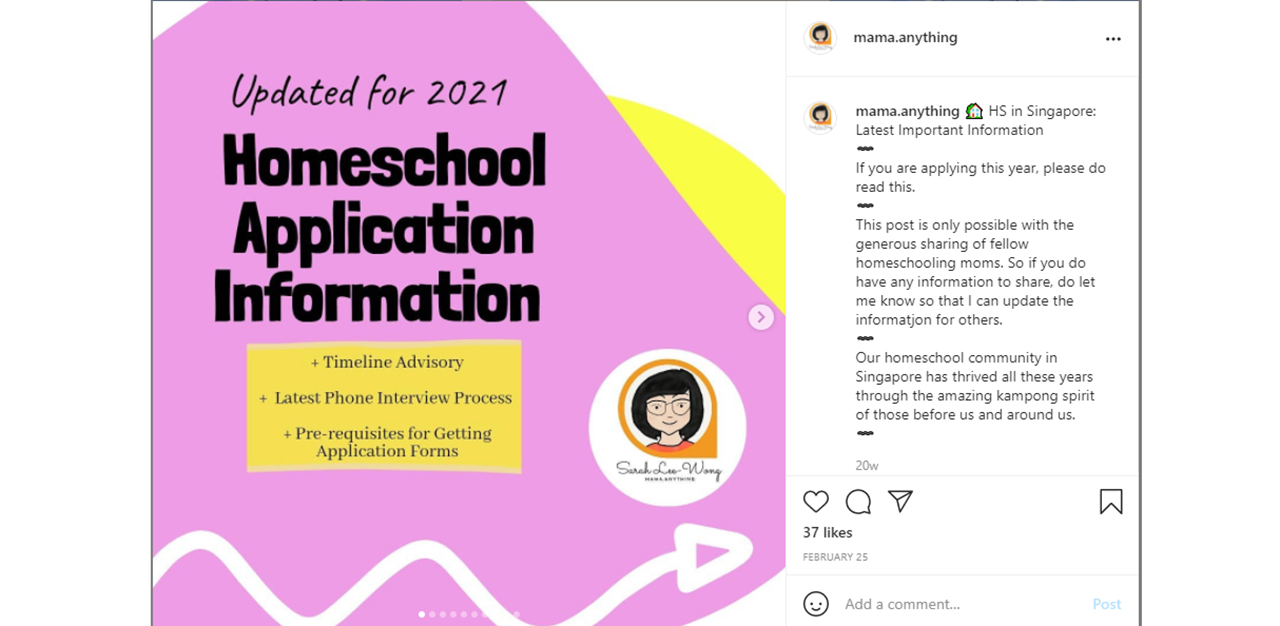
As such, some parents may choose to homeschool instead of sending their child to mainstream schools. But Mrs Lee-Wong acknowledges that “even if our children share the same diagnostic labels, [parents] will have a different answer.”
Deciding what is best for their child’s education will also depend on a family’s ability to afford private services, and the availability of services in schools, she says.
Dawn Fung, 41, founder of Homeschool Singapore, shares that the common reasons for homeschooling are manifold.
These could include finding a curriculum that fits parents’ religious or pedagogical beliefs; having unhurried time to explore the world as the classroom with kids; being able to provide the best resources available outside of school, such as a dedicated coach for sporting dreams; or simply that parents enjoy teaching their own children.
Homeschool Singapore was started in 2013 to promote homeschooling in Singapore, and to nurture a community through “shared memories, mutual assistance, exchange of ideas and common aspirations.” It is a tight-knit circle, whose members chip in to create awareness, counsel other parents and organise events, such as the annual Homeschool Convention, which brings together alumni and homeschooling parents.
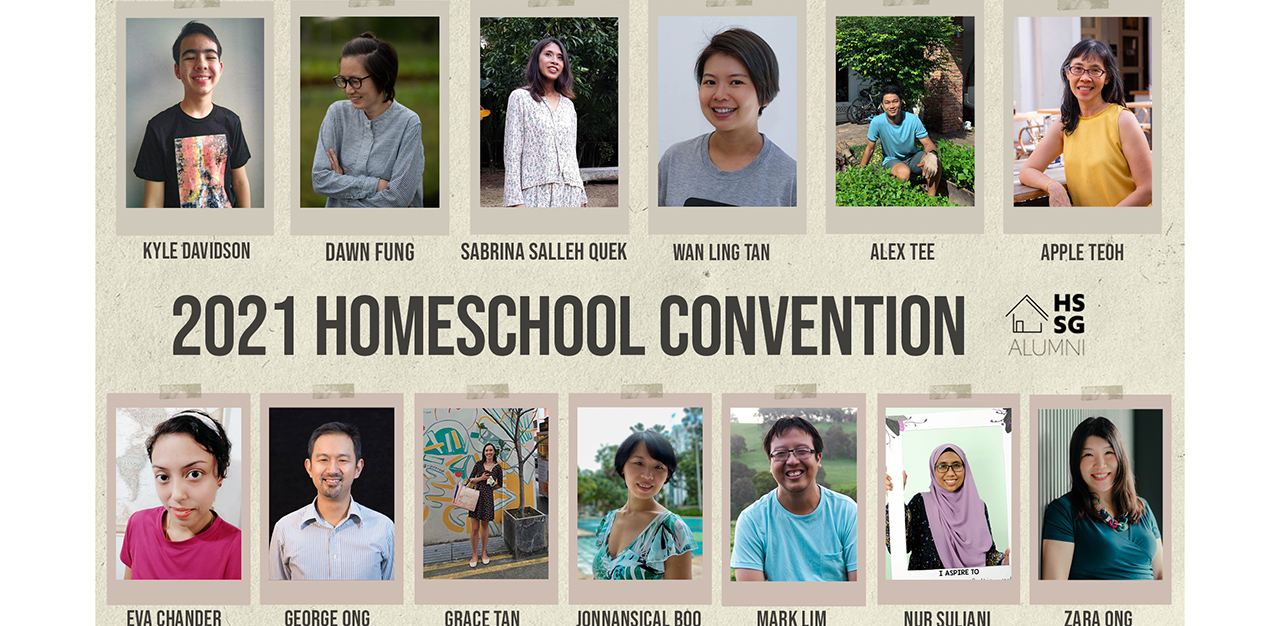
For Kalsum Harun, 39, administrator of the Muslim Homeschoolers SG Facebook group, homeschooling her children is a way to keep her family together, as her husband travels often for work. She also views schooling as an extension of parenting, and wishes to have greater say over what and how her children are learning.
Ms Kalsum says that interest in Muslim Homseschoolers SG is usually motivated by the sharing of teaching resources of Islamic content to children at home. While there are over 300 members in the private group, only about 10 per cent are homeschooling parents, with the rest exploring homeschooling, or have joined the group out of curiosity for what homeschoolers do.
Homeschooling in Singapore
The Ministry of Education (MOE) encourages all Singaporean children to attend mainstream schools, so as “to acquire a common set of core values, knowledge and skills, interact and learn with fellow students, and grow up together to forge a common national identity and engender social cohesion.”
The Compulsory Education (CE) Act, for instance, requires all Singapore citizens born in and after 1996, and residing in Singapore to attend a national primary school, unless MOE grants an exemption.
The level for compulsory education is limited to primary school, and all homeschoolers have to take the Primary School Leaving Examination (PSLE), with a passing benchmark of above the 33rd percentile of PSLE candidates, in the same year.
According to several media, MOE reports about 50 homeschooling children in every cohort, each year. Ms Fung estimates that there could be up to 1,000 homeschoolers in Singapore, because of the way the community defines ‘homeschooling’.
She explains that the definition includes parents, children from preschool, primary and secondary years. While expatriate families who are here on a short stay and Permanent Residents are not counted by MOE. Furthermore, some students who are on leave of absence from school and taught by their parents might be included as homeschooling, she adds.
The pandemic has also contributed to a rise in interest and enquiries. “With home-based learning and work-from-home arrangements, some parents find themselves enjoying the time spent with children, and are exploring the option of homeschooling,” says Ms Fung.

Concerns about prospects
‘Are they going to have a future?’ This was a query Ms Fung once fielded from those who were uninitiated about homeschooling.
In a recent survey she conducted with 15 homeschool graduates, aged 18 to their early 20s, all but one respondent indicated that homeschooling has prepared them for the workforce. They are also happy to be homeschooled, and most are willing to homeschool their own children.
Ms Fung is confident that “homeschooling graduates have no problem navigating [the workplace], because they know how to learn” and find solutions. But in a country where traditional schools and classrooms are the norm, not having schooled the conventional way and graduated with accredited qualifications has its challenges.
Enzo Ng, 25, has been homeschooled all his life. He currently helms different businesses, including a consultancy firm Ng & Partners, and a dog training and accessories business Diamond Dog K9. He attributes the reason for his homeschooling to parents who believed in managing the social, educational and religious influences that he was exposed to.
Mr Ng’s experience searching for work using an unaccredited certification speaks to this. Most potential employers he encountered were “more concerned with paper than ability,” exemplified by their queries on the legitimacy, or the equivalent, of an Abeka Academy curriculum in the Singapore schooling system. The Academy has its origins in the United States and offers a faith-based curriculum for homeschoolers, built around Christian values.
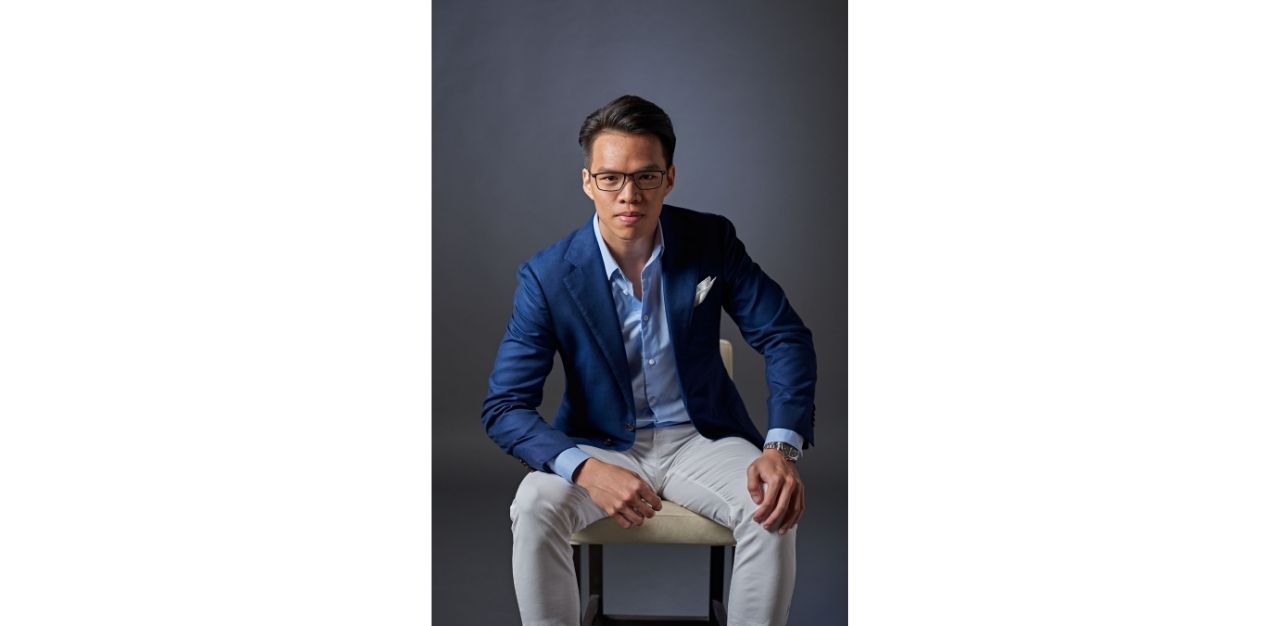
On the other hand, John Teoh, 21, thinks that there are neither “significant disadvantages [nor] advantages to people who homeschool, or go public school” when it comes to employment opportunities. While he is a self-employed photographer and filmmaker, homeschool friends around him who have applied to jobs vary in their success rates.
Mr Teoh has been homeschooled for the majority of his life, save for a half-year stint in public school, back in secondary one. He explains that his mother had wanted to spend more time with him. And afterwards, “she felt that her calling was to help us develop our talents and our skills. And it’s not just about education, but about learning… [and] preparing us for life.”
Homeschooling has given him and his friends many opportunities to meet people from different backgrounds. His personal and parents’ contacts gained during his homeschool years could be tapped for work opportunities: “You are going to find someone who knows someone, who knows someone, who knows someone,” says Mr Teoh, who is waiting to start his freshman year at Asbury University in Kentucky, USA.
Questions from the uninitiated
‘Where do you get friends?’, ‘How do you get to know people?, ‘Are you always at home?’
Given that the homeschooling community is still relatively unknown, questions like these are frequently directed at homeschoolers. They also face stereotypes of being socially awkward, sheltered or disciplined.
Prompted by mainstream perceptions that homeschoolers are socially inept, Mr Teoh started The Socially Awkward Podcast to amplify the voices of homeschoolers in Singapore. “We kind of wanted to play off that,” he says, referring to the podcast’s title. “These people that we are featuring on the podcast, in no way are they socially awkward.”
Homeschoolers are also often thought to be sheltered, which he thinks is true to a certain extent for younger ones. “Once we hit the upper secondary level, we start to become a lot more independent, can take initiative and do a lot more things,” he says.
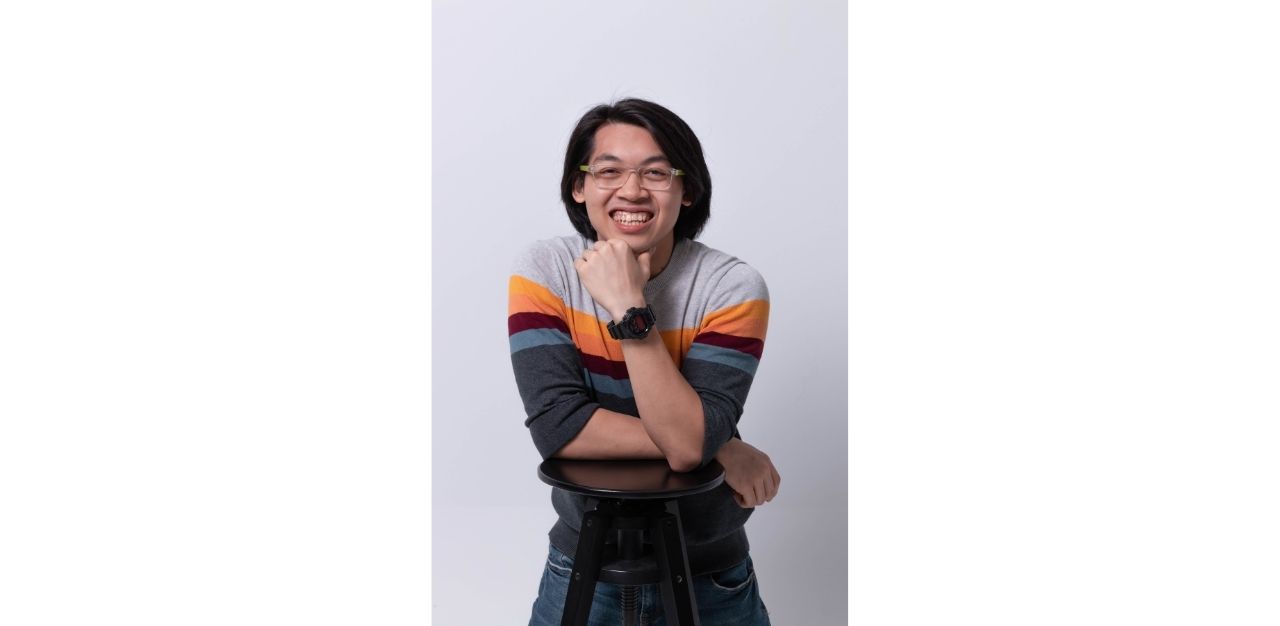
In his community, homeschoolers are also often able to start their own interest groups if none exist. “Most of the time, you’ll find one or two other people interested in the same thing as you,” he explains.
There are also many sports groups in Mr Teoh’s homeschooling community, ranging from soccer, netball, dragon boating to kayaking. On top of the podcast, he has initiated photography and public speaking interest groups, too. Comparatively, students in public schools may find their options constrained by the range of co-curricular activities (CCA) the school offers, and may also face a cap on intake for popular CCAs.
Apart from wanting to dispel the perception of being socially awkward, he hoped to create an accessible avenue for homeschoolers to nurture their passion in media production. “I figured that there would be people who are younger than me, or less experienced than me who want this sort of experience,” he says, “but they don’t know how to find it or don’t know where to go.”
Interested homeschoolers simply have to share what they wish to learn. If the podcast team is able to provide the opportunity and guidance, “you are most welcome to come on board,” adds Mr Teoh.
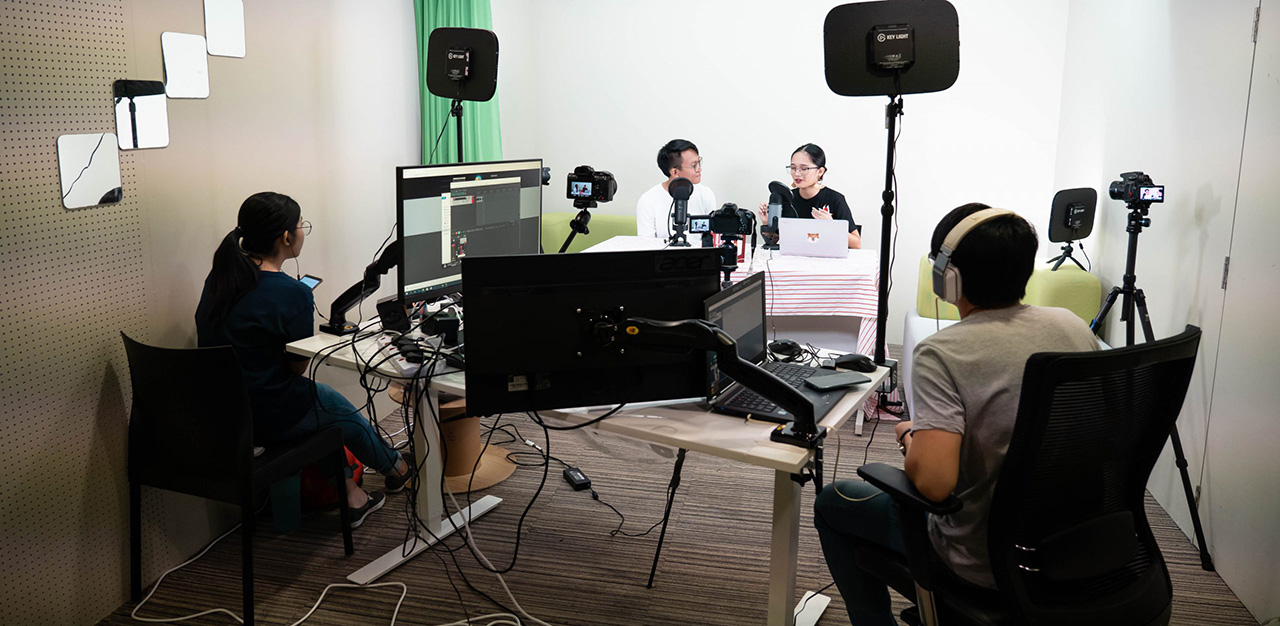
For Ms Kalsum’s children, “despite not going to school, [they] are not short of friends,” she says. And believes that through sports and a variety of study and social groups, both local and global, her children have gained the ability to converse well with both peers of the same age group and adults, alike.
As to the common assumption that homeschoolers are unsocialised, Mr Teoh thinks that this is “not entirely accurate”, but appears in isolated examples. Whereas, Mr Ng says that they are “not wrong” or “not unfounded,” as he notes that such assumptions are made because some homeschoolers have appeared to display unsocialised behaviour.
So what is there to make of “the unsocialised myth”, as Ms Fung calls it? To her, these stereotypes are an image that people who do not know what homeschooling is like, make of homeschoolers.
Whenever she talks about the homeschooling community, she likes drawing attention to how “un-homogenous” it is: “If you talk about a typical profile of a Singapore school student, you cannot find one. It doesn’t exist,” she explains. “Same thing. If you [try to] find a typical profile of a homeschooling family or student, there isn’t one.”
Naysayers decry potential abuse of homeschoolers
Even as Ms Fung and those in her community extol the benefits of homeschooling, there are sceptics who question the efficacy and safety of a homeschool environment.
In a letter to the Straits Times Forum page on 4 February 2020, Cheng Choon Fei noted that parents might not have the “correct skills” to ensure that their child attains their potential, and suggested that it was best to “leave it to the professionals.”
While in an 80-page article in the May-June 2020 issue of Harvard Magazine, Elizabeth Bartholet, a Harvard law professor, pointed out that the practice could isolate children and prevent authorities from being alerted to evidence of child abuse. In other cases, parents might use homeschooling as a cover for their lack of care and end up neglecting their child’s education, since they might not be held accountable for proving that teaching and learning is taking place. Refuting Ms Bartholet’s call to ban or severely restrict homeschooling in the US, Boston College Research Professor, Peter Gray in a piece for Psychology Today instead argues for the benefits of educational diversity.
For those who exploit the homeschooling system in Singapore, Ms Fung says that they should be held accountable, rather than result in the practice being rejected wholesale: “If a homeschooling parent is in the news for neglecting or abusing his child, then he is not homeschooling. Instead of education, he used his time for evil,” Ms Fung argues, and asks, “Does that mean homeschooling is wrong?”
She applies this same logic to teachers who have been caught molesting their students: “Is schooling wrong? Were the schools closed down? Of course not. You make sure that there are better practices in place,” she says, and adds that this should be the same for homeschooling: “You don’t shut down homeschooling because of some stupid offender. You punish that offender, and then you focus on those who do it right.”
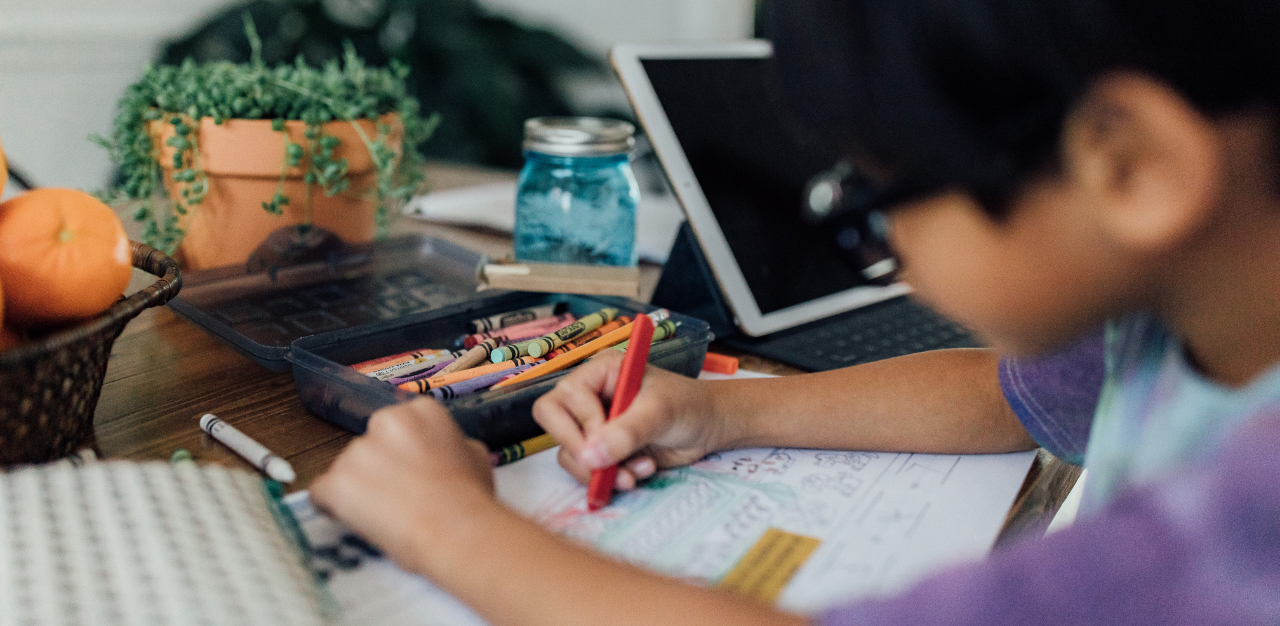
Hopes for inclusive schooling for all in the future
Mrs Lee-Wong believes it is important for all parents, whether of homeschooling or public school children, to be informed of their child’s educational choices, by understanding children’s interests, learning abilities and the learning environment or culture most suited to their growth.
“When our children have special educational needs, then we also have to think [about] how [to] help them navigate a society where learning and life is still very much catered, geared and designed for the neurotypicals,” she argues.
It is also important that homeschooling parents constantly review their children’s needs and the family’s situation to ascertain if it remains the best option, says Mrs Lee-Wong.
If a family’s homeschooling journey has come to an end, due to a lack of spousal support or financial issues that render it untenable, or due to children wishing to attend public schools, Ms Fung advises parents, who often berate themselves, to “let go” and retain the happy memories.
“Homeschooling is not some ideology you put on some pedestal,” she asserts. “It is one of the many viable educational pathways out there. It will work if you want it to, but it may work only for a season.”
What is important, says Ms Fung, is for all parents to be able to exercise more autonomy in their children’s educational choices. “When you have people who are free to decide if they want to school or homeschool, they have made a mental and emotional decision to be involved. And you cannot take that lightly,” she says.
Looking ahead, Mrs Lee-Wong hopes to see more children of various physical, learning and behavioural abilities interact in a school setting, citing British Columbia as an example of inclusive, mixed school setting. She also wants to see an integrated system of allied educators made available within the school premise, so that children of various SEN may more easily access support services, intervention or therapy services.
Similarly, Ms Fung wishes for Singapore to be an example of an inclusive, collaborative education landscape: “Why can’t homeschooling families contribute some programmes to their neighbourhood schools? Why can’t schools open up integrative opportunities to include homeschoolers? Don’t we believe in education without borders?” she asks.
For Ms Fung, education should be customised to the learner, and never about them “fitting into a system”.
She adds, “People forget that children are not little adults. And children are not workers. I hate the idea that you prepare a child for the workforce. You prepare a child to live a healthy and meaningful life with you… Professional educators and parents must respect childhood for what it is, a fleeting period of formative growth, exploration and play without worries.”
Join the conversations on TheHomeGround Asia’s Facebook and Instagram, and get the latest updates via Telegram.




























